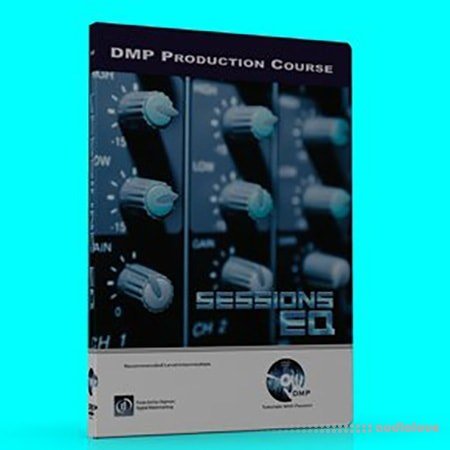Dance Music Production Sessions 06: EQ [TUTORiAL]

SYNTHiC4TE | 13 February 2013 | 1.70 GB
For Sessions 06 and due to popular request, we discuss and examine EQ in the detail you've come to expect from DMP.
With a focus on its use in the production of dance music we lift the lid on one of the most popular yet most mix destroying processors ever conceived...
EQ is one of the fundamental tools in music production and the main ingredient for producing a great final mix. However, it also happens to be one of the most misunderstood, misused, over used, under used, abused processors available.
On the surface EQ is little more than a tone control and at its simplest level it offers you the ability to either boost or cut a specific range of frequencies. However, whilst it doesn’t take an awful lot of research to learn what each parameter does and the effects it will impart on audio, this is very different from being able to use it with any real skill.
In this 3 hour tutorial we examine all the aspects of EQ. Starting with with an examination of the science of sound, fundamentals and harmonic generation we examine how our perception changes with volume and frequency and how this applies to EQ. We look at the bandwidth Q factor and why octaves are important.
We study the octave frequency range, the exponential nature of octaves and what this means for the application of EQ. We examine both IIR and FIR (minimal phase and linear phase) and how they are created. We also take a look at the response curves of musical and surgical EQ, shelving filters, overshoot, the Nyquist theorem and the problems of frequency cramping
But most important of all, we look at how all of this information can be combined to complete the image of EQ and how that’s used to create a mix with clarity and depth rather than create something that’s muddy and incoherent.
Tutorial Runtime: 3hr 30 minutes
home page
With a focus on its use in the production of dance music we lift the lid on one of the most popular yet most mix destroying processors ever conceived...
EQ is one of the fundamental tools in music production and the main ingredient for producing a great final mix. However, it also happens to be one of the most misunderstood, misused, over used, under used, abused processors available.
On the surface EQ is little more than a tone control and at its simplest level it offers you the ability to either boost or cut a specific range of frequencies. However, whilst it doesn’t take an awful lot of research to learn what each parameter does and the effects it will impart on audio, this is very different from being able to use it with any real skill.
In this 3 hour tutorial we examine all the aspects of EQ. Starting with with an examination of the science of sound, fundamentals and harmonic generation we examine how our perception changes with volume and frequency and how this applies to EQ. We look at the bandwidth Q factor and why octaves are important.
We study the octave frequency range, the exponential nature of octaves and what this means for the application of EQ. We examine both IIR and FIR (minimal phase and linear phase) and how they are created. We also take a look at the response curves of musical and surgical EQ, shelving filters, overshoot, the Nyquist theorem and the problems of frequency cramping
But most important of all, we look at how all of this information can be combined to complete the image of EQ and how that’s used to create a mix with clarity and depth rather than create something that’s muddy and incoherent.
Tutorial Runtime: 3hr 30 minutes
home page
Only registered users can see Download Links. Please or login.


No comments yet